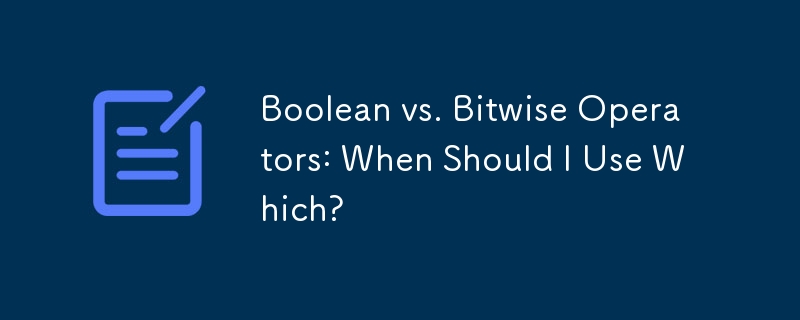

Navigating the Difference between Boolean and Bitwise Operators in Programming
Understanding when to employ Boolean versus bitwise operators is a vital skill for programmers. Confusion can arise as these operators bear similar symbols but operate under distinct principles.
Boolean Operators: When Truth Matters
Boolean operators (and, or) analyze boolean values (True or False) and return a new boolean value based on their logical operations. They excel in manipulating logical expressions, such as:
if (x == True and y == False):
# ...This code checks if both x and y hold the value True before proceeding. Boolean operators are short-circuiting, meaning they evaluate operands from left to right and immediately halt evaluation when a decisive condition is encountered.
Bitwise Operators: Manipulating Bits
Bitwise operators (&, |) primarily work on integer values and perform bit-level operations. They directly engage with binary bit representations, bitwise ANDing or ORing integer values:
result = 10 & 3 # Bitwise AND # result: 2
Unlike Boolean operators, bitwise operators do not short-circuit. They evaluate both operands regardless of the outcome of the first operand.
Choosing the Right Tool for the Job
Use Boolean operators when working with boolean values and logical expressions. Their short-circuiting behavior ensures efficiency in conditional and evaluation scenarios.
Conversely, opt for bitwise operators for manipulating integer values or directly interacting with individual bits within binary representations.
The above is the detailed content of Boolean vs. Bitwise Operators: When Should I Use Which?. For more information, please follow other related articles on the PHP Chinese website!




